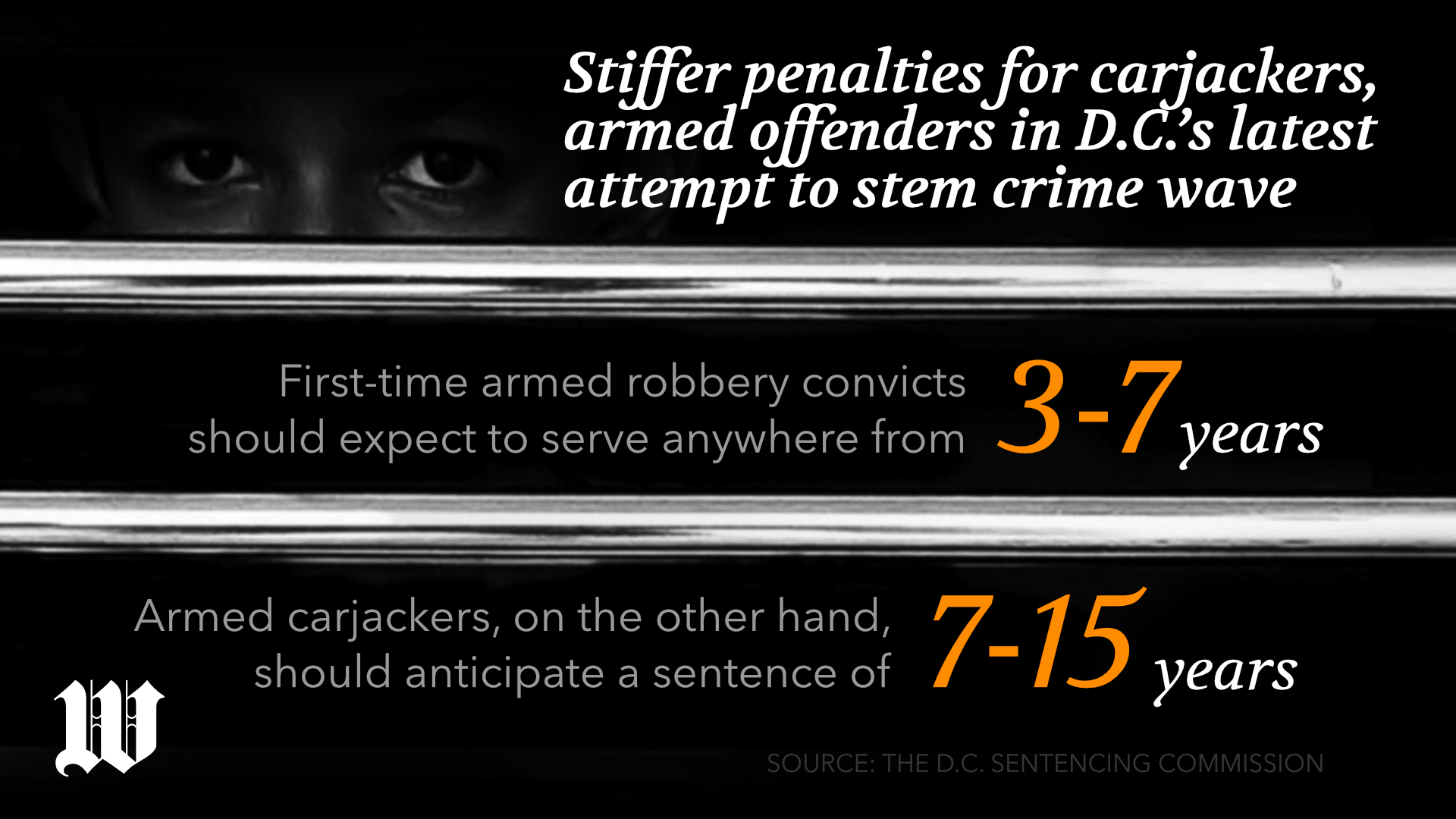The D.C. Council’s Public Safety Committee will vote Wednesday on a bill to help prosecutors lock up the carjackers and shooters who drove the city’s violent crime wave last year.
Brooke Pinto, Ward 2 Democrat and chair of the safety panel, introduced the legislation that largely marries some of D.C. Mayor Muriel Bowser’s previous crime-fighting proposals with the emergency provisions that have been in effect since the summer.
That includes giving judges greater latitude to hold violent adult and juvenile suspects before trial — a major feature of the temporary anti-crime legislation — as well as the mayor’s interest in giving Metropolitan Police the authority to declare “drug-free zones” in specified areas to diffuse criminal activity.
The bill comes as city leaders scramble to avoid a repeat of 2023, where the District suffered spikes in robberies and carjackings and saw the most homicides since 1997.
One new element in the legislative package is aimed at tamping down carjackings by broadening the legal definition of the crime.
According to D.C. law, a victim has to be forced out of their vehicle for a carjacking charge to apply.
If the victim is mugged for their car keys while standing near their vehicle — such as by a gas pump or if they are walking from their car to their home — then the suspects can only be charged with auto theft or robbery.
The proposed change is backed by the U.S. Attorney’s Office, the federal prosecutors who handle most major crimes in the city.
“Under current law, if you walk away from your car with keys in your hand and are held up at gunpoint by someone who demands your keys and takes your car, there are legal fights about whether this is a carjacking,” U.S. Attorney Matthew Graves said in a statement to The Washington Times. “Secure DC makes clear that scenarios like this are always carjackings, ending the senseless fights on this issue and allowing us to hold those who carjack fully accountable for their criminal conduct.”
The change could mean more jail time for violent car thieves.
The D.C. Sentencing Commission, the city-run board that sets sentencing guidelines for all criminal offenses, says first-time armed robbery convicts should expect to serve anywhere from three to seven years behind bars.
Armed carjackers, on the other hand, should anticipate a sentence of seven to 15 years, according to the commission.
Carjackings continue to be a major sore spot for the city.
Barely two weeks into the new year, police data shows the 24 reported carjackings are already ahead of last year’s record-setting pace that ended with 958.
The thieves don’t seem to be deterred by bad weather either: police said three suspects chased down and jumped a victim for his car keys in Northeast on Monday as nearly 4 inches of snow fell over the District.

Attempts to rein in the rampant carjackings are joined by legislative efforts to cut down on brazen shootings.
Ms. Pinto’s bill seeks to make permanent her temporary law of “endangerment with a firearm,” which makes it illegal to shoot a gun in public places, even if it doesn’t hit anyone.
The new felony offense would bring a max penalty of five years in prison and would help close gaps in how shooters are prosecuted in the District, Ms. Pinto said.
Other proposals from Mayor Bowser — such as her desire to relax police neck restraint protocols, create harsher penalties for retail theft ringleaders and prohibit mask-wearing on public property for people 16 and older — are also featured in the bill.
Further, the legislation seeks to give police the ability to arrest Metro fare evaders who refuse to cooperate after being stopped, and wants to reduce the felony theft threshold from $1,000 to $500.
One aggressive measure that was removed was Ms. Pinto’s proposal for paroled gun offenders to be subject to warrantless police searches at any time. The move was heralded by some of her fellow council members.
“I am also heartened to see warrantless searches — a relic of the failed stop-and-frisk era and which came under constitutional questioning by District courts — was not advanced in this legislation by the committee,” Ward 5 representative Zachary Parker said in a statement last week. “I met privately with Council member Pinto to discuss the harm of this proposal, and appreciate its removal from the omnibus bill.”
Outside of changes to laws and punishments, the bill requires the Criminal Justice Coordinating Council to maintain a public dashboard where people can view prosecution rates for violent offenses in the city for both adults and juveniles.
The new bill comes as Republicans on Capitol Hill have hounded D.C.’s leaders for being soft on crime.
Senate Minority Leader Mitch McConnell skewered “Washington’s radical local government” last week for defunding the police budget in the wake of the 2020 police killing of George Floyd — leading to a 50-year-low in police staffing.
He also bashed the U.S. Attorney’s Office for declining to pursue charges in two-thirds of its cases two years ago, which many lawmakers pointed to for creating a sense of lawlessness in the nation’s capital.
• Matt Delaney can be reached at mdelaney@washingtontimes.com.




Please read our comment policy before commenting.